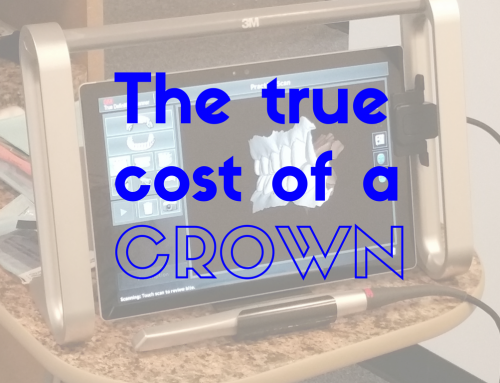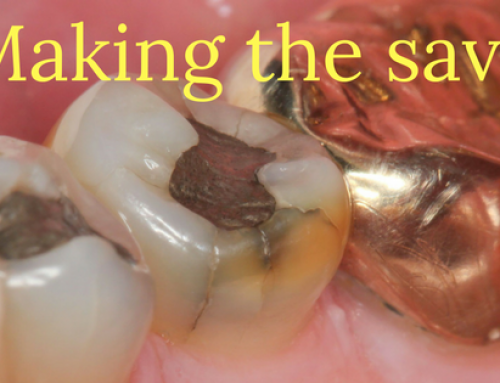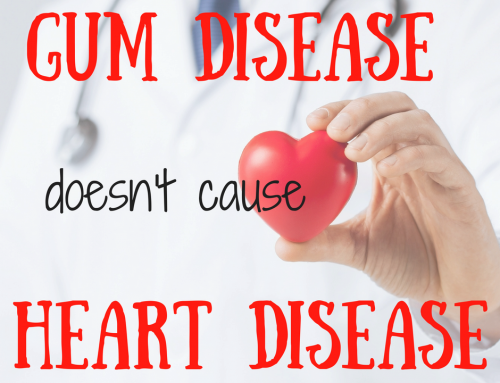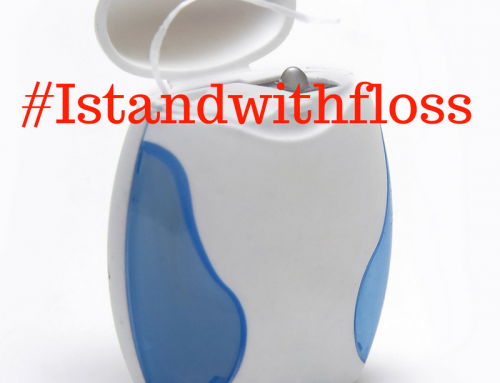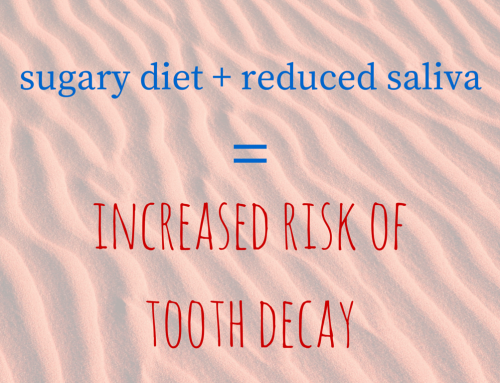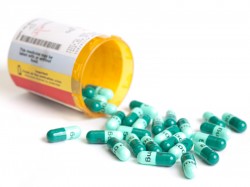 Joint replacement surgery changes lives. For some people having a knee or hip replaced can end years of pain and struggle. The procedure has become quite common and many dental patients in our office have had it done.
Joint replacement surgery changes lives. For some people having a knee or hip replaced can end years of pain and struggle. The procedure has become quite common and many dental patients in our office have had it done.
Orthopedic surgeons and dentists have been telling themselves and their patients a story about artificial joints and the risks involved with dental treatment after having one. The story goes kind of like this:
Dental treatment causes oral bacteria to get into the bloodstream. These bacteria find their way to artificial joints and if they do, they can get horribly infected. Sometimes the infection can cause the artificial joint to become so bad that it fails and needs to be replaced. This is a serious and expensive side effect. The solution to this problem is premedicating with an antibiotic before you have any dental work done. That will make it so any oral bacteria that make it into the bloodstream are killed off before they can get to the artificial joint.
At first glance, this story makes sense. You definitely don’t want an artificial joint to become infected. Since we know that dental work can cause oral bacteria to get into the bloodstream, having dental work is clearly the problem. Right?
Well…not really. The story might not be true. In fact, there is no scientific evidence that artificial joints are more susceptible to infection after dental work. The story seems plausible but just doesn’t line up with our available evidence.
Some would say, “the complication of an infected joint is so severe that taking a dose of antibiotics is a small price to pay to keep us safe.” It turns out that there is also no scientific evidence that taking any particular antibiotic can keep an artificial joint from becoming infected. Furthermore, it’s worth mentioning that taking antibiotics isn’t a risk-free event, either. Allergic reactions can happen even in people who have had no reactions taking the same medication in the past. On top of that, every time you take an antibiotic it affects the natural balance of all the good bugs that inhabit your body as well. If you’ve ever gotten a yeast infection after taking an antibiotic, you know exactly what I’m talking about! Furthermore, the overuse of antibiotics promotes bacteria that become resistant to the antibiotics which is bad for everyone!
So this is what we’ve been battling with in dentistry. The standard for joint premedication has been take 2000mg (2g) amoxicillin an hour prior to your dental appointment. However, it is somewhat typical for a patient who is supposed to take their premedication to forget to take it. In fact, it happens often. At least weekly in my experience. So then you try and decide whether you should send them home and reschedule their appointment, give them the premedication at the office or just skip it. We sure could use a little bit of guidance from professional organizations, right?
In 2012 the American Dental Association (ADA) and the American Association of Orthopaedic Surgeons (AAOS) published some guidelines. Some vague guidelines. Frustratingly. Vague. Guidelines. You can read about these guidelines in a blog post I wrote back in 2012. Essentially the guidelines stated that although there isn’t any scientific evidence to support the use of antibiotics prior to dental treatment in joint replacement patients, each case should be considered separately. The opinion of the surgeon, patient and dentist were essentially equally valid. There was not a strong “you should do this” or “you shouldn’t do this” attached to the 2012 guidelines.
I have been trying to explain to joint replacement patients that the evidence goes against the need for premedication. However, these patients have been taking antibiotics for their artificial joints for years and years. They have been told by surgeons, dentists, hygienists and all sorts of other health care providers that they are truly at risk if they don’t. Many patients wanted to continue the antibiotics for dental treatment “just to be sure.” And who could blame them? Many dentists weren’t willing to take the (essentially nonexistent) risk either. Our policy had been that the patient just needed to get a letter from their orthopedic surgeon stating that the surgeon felt premedication was necessary and we’d write the prescription. This was a compromise that I was willing to make so long as we were stuck with these wishy washy guidelines.
In early January 2015, the American Dental Association finally weighed in strongly on the controversy:
“In general, for patients with prosthetic joint implants, prophylactic antibiotics are not recommended prior to dental procedures to prevent prosthetic joint infection. The practitioner and patient should consider possible clinical circumstances that may suggest the presence of a significant medical risk in providing dental care without antibiotic prophylaxis, as well as the known risks of frequent or widespread antibiotic use. As part of the evidence-based approach to care, this clinical recommendation should be integrated with the practitioner’s professional judgment and the patient’s needs and preferences.”
Not perfect, but pretty good in my estimation. The factors that may require premedication now are people who have previously had complications with infected artificial joints as well as patients with immune system compromise.
There should be rejoicing in the streets! Think of how much less often patients will have to take antibiotics! But alas, I’ve already run into patients with concerns. I completely understand this because it’s tough to change what we’ve been doing for so long. For now, we’re going to talk to patients and explain that they really don’t need antibiotics. But we’ll keep in touch with their orthopedic doctors, too. Change happens slowly, but I think the new guidelines are a big step in the right direction!
Did you find this post disjointed? Infectious? I’d love to hear about it! You can share any Mead Family Dental post with a “Like” on Facebook, a “+1″ on Google+ or you can even “Tweet” it with Twitter! All you need to do is hover over the heart shaped button next to the title of the post. Or you can leave a comment by clicking on the balloon shaped icon next to the title.
If you’re looking for a dentist in Saginaw, we’re always happy to accept new patients! You can request an appointment online or call the office at (989) 799-9133. And, as always, you can email me at alan@meadfamilydental.com. I always answer my own emails!


